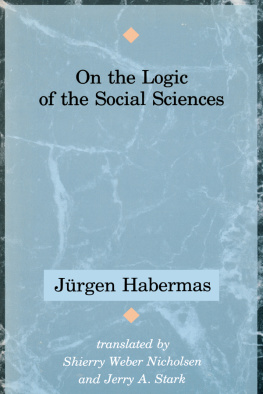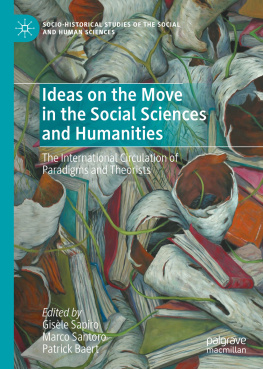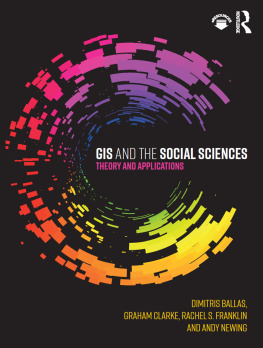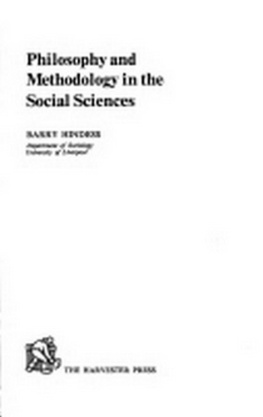
Non-Representational Theory
Non-Representational Theory presents a distinctive approach to the politics of everyday life. Ranging across a variety of the spaces in which politics and the political unfold, it questions what is meant by perception, representation and practice, with the aim of valuing the fugitive practices that exist on the margins of the known. This book questions the orientation of the social sciences and humanities and makes essential reading for researchers and postgraduates. It revolves around three key functions:
it introduces the rather dispersed discussion of non-representational theory to a wider audience,
it provides the basis for an experimental rather than a representational approach to the social sciences and humanities,
it begins the task of constructing a different kind of political genre.
Nigel Thrift brings together further writings from a body of work that has come to be known as non-representational theory. Thrift's noteworthy book makes a significant contribution to the literature in this area and provides a groundbreaking and comprehensive introduction to this key topic making Non-Representational Theory an incredibly useful text for students of social theory, sociology, geography, anthropology and cultural studies.
Nigel Thrift, Professor at the University of Warwick, is also a Visiting Professor at the University of Oxford and an Emeritus Professor at the University of Bristol. He has authored, co-authored and co-edited more than 35 books and over 200 journal articles. His research includes work on international finance, new forms of capitalism, cities, social and cultural theory and the history of time
International Library of Sociology
Founded by Karl Mannheim
Editor: John Urry
Lancaster University
Recent publications in this series include:
Risk and Technological Culture
Towards a sociology of virulence
Joost Van Loon
Reconnecting Culture, Technology
and Nature
Mike Michael
Advertising Myths
The strange half lives of images and
commodities
Anne M. Cronin
Adorno on Popular Culture
Robert R Witkin
Consuming the Caribbean
From Arwaks to Zombies
Mimi Sheller
Crime and Punishment in
Contemporary Culture
Claire Valier
Between Sex and Power
Family in the world, 19002000
Goran Therborn
States of Knowledge
The co-production of social science
and social order
Shelia Jasanoff
After Method
Mess in social science research
John Law
Brands
Logos of the global economy
Celia Lury
The Culture of Exception
Sociology facing the camp
Bulent Diken and Carsten Bagge Lausten
Visual Worlds
John Hall, Blake Stimson
and Lisa Tamiris Becker
Time, Innovation and Mobilities
Travel in technological cultures
Peter Frank Peters
Complexity and Social Movements
Multitudes acting at the edge of chaos
Ian Welsh and Graeme Chesters
Qualitative Complexity
Ecology, cognitive processes and the
re-emergence of structures in
post-humanist social theory
Chris Jenks and John Smith
Theories of the Information Society
3rd Edition
Frank Webster
Mediating Nature
Nils Lindahl Elliot
Haunting the Knowledge Economy
Jane Kenway, Elizabeth Bullen,
Johannah Fahey and Simon Robb
Global Nomads
Techno and new age as transnational
countercultures in Ibiza and Goa
Anthony D'Andrea
The Cinematic Tourist
Explorations in globalization, culture
and resistance
Rodanthi Tzanelli
Non-Representational Theory
Space | politics | affect
Nigel Thrift
Non-Representational Theory
Space | politics | affect
Nigel Thrift
LONDON AND NEW YORK
First published 2008
by Routledge
2 Park Square, Milton Park, Abingdon, Oxon, OX14 4RN
Simultaneously published in the USA and Canada
by Routledge
270 Madison Ave, New York NY 10016
Routledge is an imprint of the Taylor & Francis Group, an informa business
This edition published in the Taylor & Francis e-Library, 2007.
To purchase your own copy of this or any of Taylor & Francis or Routledges collection of thousands of eBooks please go to www.eBookstore.tandf.co.uk.
2007 Nigel Thrift
All rights reserved. No part of this book may be reprinted or reproduced
or utilised in any form or by any electronic, mechanical, or other means,
now known or hereafter invented, including photocopying and recording,
or in any information storage or retrieval system, without permission in
writing from the publishers.
British Library Cataloguing in Publication Data
A catalogue record for this book is available from the British Library
Library of Congress Cataloging in Publication Data
A catalog record for this book has been requested
ISBN 0-203-94656-1 Master e-book ISBN
ISBN10: 0-415-39320-5 (hbk)
ISBN10: 0-415-39321-3 (pbk)
ISBN10: 0-203-94656-1 (Print Edition) (ebk)
ISBN13: 978-0-415-39320-1 (hbk)
ISBN13: 978-0-415-39321-8 (pbk)
ISBN13: 978-0-203-94656-5 (Print Edition) (ebk)
Copyright 2006/2007 Mobipocket.com. All rights reserved.
Reader's Guide
This ebook has been optimized for MobiPocket PDA.
Tables may have been presented to accommodate this Device's Limitations.
Table content may have been removed due to this Device's Limitations.
Image presentation is limited by this Device's Screen resolution.
All possible language characters have been included within the Font handling ability of this Device.
Contents
PART I
PART II
PART III
Preface
This book summarizes and extends a batch of work carried out since the late 1990s concerned with what I call non-representational theory. On one level this is a book about the dynamics of susceptibility and about how we are being made susceptible in new ways. Of course, we are continually being made into new creatures by all kinds of forces, but it is surely the case that as the world is forced to face up to the damage done, so we can no longer move along the same cul-de-sacs of practical-cum-conceptual possibilities. Other possibilities need to be alighted upon for thinking about the world. That requires boosting inventive attitude so as to produce more contrary motion.
Then, on another level, this is a book about apathy. Given what has to be faced, it seems important to find a way of expanding the capacity for action in a world in which action is severely circumscribed. But it is not the heroic, individualized and autonomous action of a certain kind of activist 'self-confident and free of worry, capable of vigorous, wilful activity' (Walzer 1988:313) that I want to concentrate on in this book. Rather, rediscovering, at least to an extent, seventeenth-century notions of agency and selfhood, it is an action that can be associated with passivity, but a passivity that is demanding, that is called forth by another (Gross 2006).
Next page










